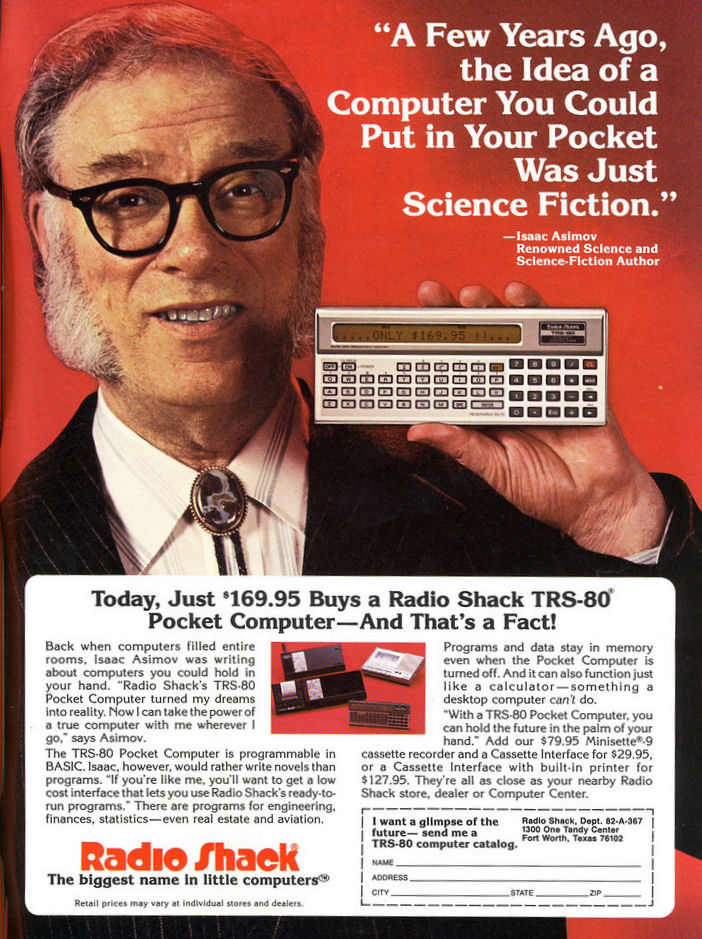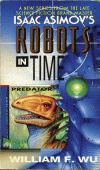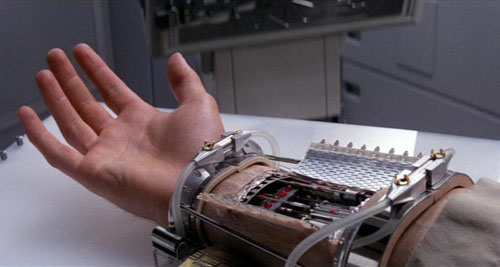I ran across this ad recently for an amazing new product, promoted by my own favorite science fiction author, Isaac Asimov.
Radio Shack’s TRS-80 Pocket Computer turned my dreams into a reality. Now I can take the power of a true computer with me wherever I go.
— Isaac Asimov
The marketing guys chime in a few paragraphs later.
And it can also function just like a calculator — something a desktop computer can’t do.
— Radio Shack
Wait, what!? With a standard calculator included in just about every phone that I can think of, it is hard to imagine a desktop computer ever existing without that ability. Crazy, right? Now that I think of it, it wasn’t too far in the distant past that desktop computers couldn’t be used for voice communications, something a simple phone could do. So what does $169.95 actually get you?
From Dave Dunfield’s old computer page:
The machine was actually a Radio Shack branded version of the Sharp PC-1211, which features:
- Sharp SC43177/SC43178 4-bit CPU running at 256khz
- 1×24 character LCD display
- 57 key “Qwerty” keyboard
- 1.5k of RAM for user program storage
- Pizoelectric buzzer
Be sure to check out the full breakdown at Dave’s TRS-80 Pocket Computer page
As a point of comparison, here are a few highlights of Motorola’s Droid 2 tech specs:
- 1 GHz processor
- 480×854 Pixel display (Characters displayed depends on the font)
- QWERTY keyboard
- 8GB flash (expandable to 32GB)
- Support for stereo bluetooth (not sure if actual speaker is stereo or not)
- 100’s of other features like camera, video capture, streaming video, and get this includes the ability to make phone calls. Sadly though, it can’t make you breakfast… yet.
Let me whip out my calculator on my i7 Desktop Computer! The Droid 2 has a 3,906.25 times faster processor (just based on clock rate, not actual computational power) and has 5,592,405.33 times more storage. That seems crazy right? The TRS-80 pocket computer came out in 1980, about 20 years ago. I wonder how people will feel about our state of the art smartphones in 2020? That is assuming we haven’t been taken over by robots gone wild, destroyed ourselves with nukes, or succumbed to a raging nano-plague. But that is all just science fiction.

Isaac Asimov promotes Radio Shack's TRS-80 Pocket Computer





